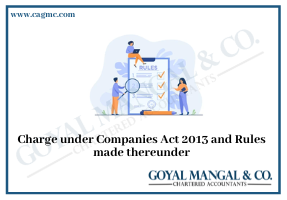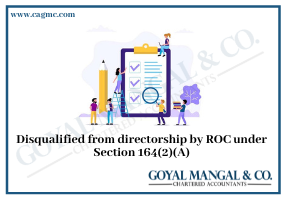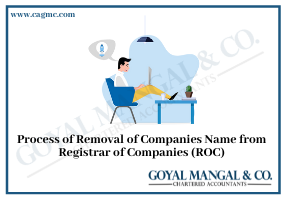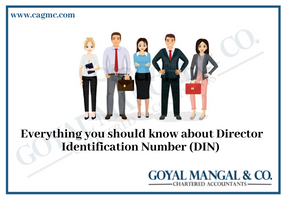A charge in terms of section 2 (16) of the Companies Act 2013 means interest or liability created on the Company’s property or assets or any of its contracts or both as collateral and includes mortgage debt. In simple terms, a charge is financial collateral created by a Company on its assets or property instead…
Director’s Identity Identification Number (DIN) is an ID number assigned by Central Government to persons who intend to become a new company director or existing director. All company directors must have a DIN. The Registrar of Companies (ROCs) may issue a director’s DIN under Section 164 (2) of the Companies Act, 2013. This article talks…
Nowadays, the incorporation and emergence of new companies have become common. But there are certain existing companies who want to close due to different reasons. The closure of Companies can be by fulfilling some specific documentation and conditions as per law. Section 248 of the companies Act 2013, talks about the Power of Registrar for Removal…
SEBI (Securities and Exchange Board of India), decided during a board meeting held on 15 February 2022 to make it voluntary for the top 500 listed companies to separate the role of the chairperson of the Board and the chief executive officer (CEO) of the company. Before dealing with the Separation of Roles of Chairperson and…
Director of a company is the manager and head of the company after the chairperson. According to Companies Act 2013, the director of a company or who wants to be a director in a company has to obtain the Director Identification Number (DIN). In this blog, we will discuss everything about Director Identification Number (DIN). Table…
The Ministry of Corporate Affairs (MCA) has changed the law governing the strike-off of Limited Liability Partnerships (LLPs). Because the consequences for failing to file any statutory return are fairly severe, it is prudent for inactive LLPs to close their doors. They can avoid fines by filing applicable forms, and they won’t have to file…
Did you register your company, but somehow the business does not take off? Then what are the safeguards there to protect you? How can you protect yourself from the problems? What are the ways by which you can strike off your company? It is common for a business idea to not take off. Further, you…
In each company, there are two types of shares: Equity Shares or Common Stock and Preference Shares or Preferred Stock. Equity Shareholders are regarded as the true owners of the company since they have voting rights, although preference shareholders do not have voting rights on all resolutions under normal circumstances. However, if a dividend on…
If a company needs money without reducing its equity status, the Company selects a Debentures Issue. It is a debt to the Company. It is similar to borrowing money that needs to be repaid over a while. Debentures have a fixed interest rate. Both organizations and governments often issue debentures to raise funds or capital….
When a shareholder loses his or her share certificate, the shareholder and the corporation in which he or she owned shares may suffer significant financial losses. Under Section 46 of the Companies Act, 2013, and Rule 6(2) (a) to (c) of the Companies (Share Capital and Debentures) Rules, 2014, duplicate share certificates can be issued…









